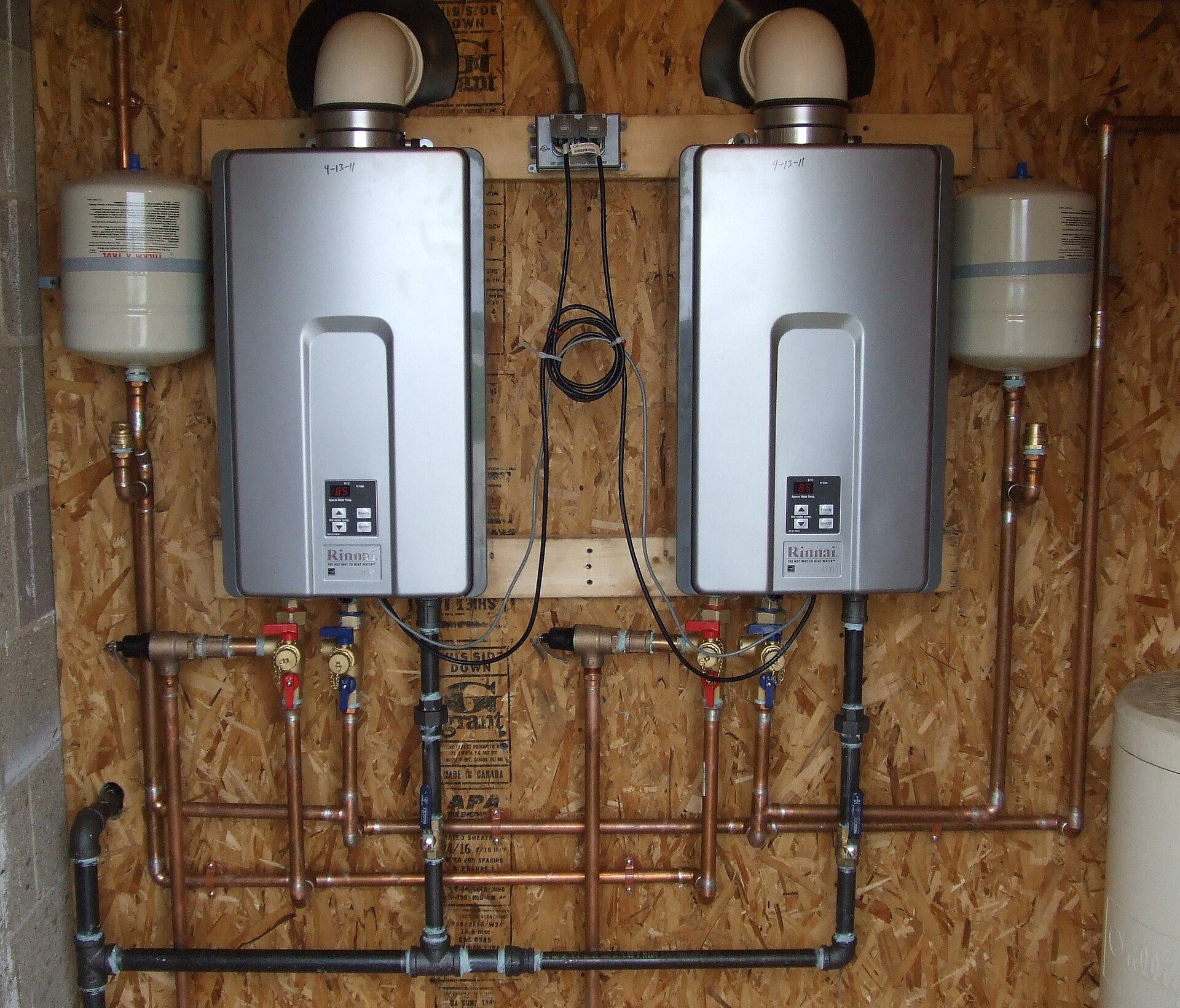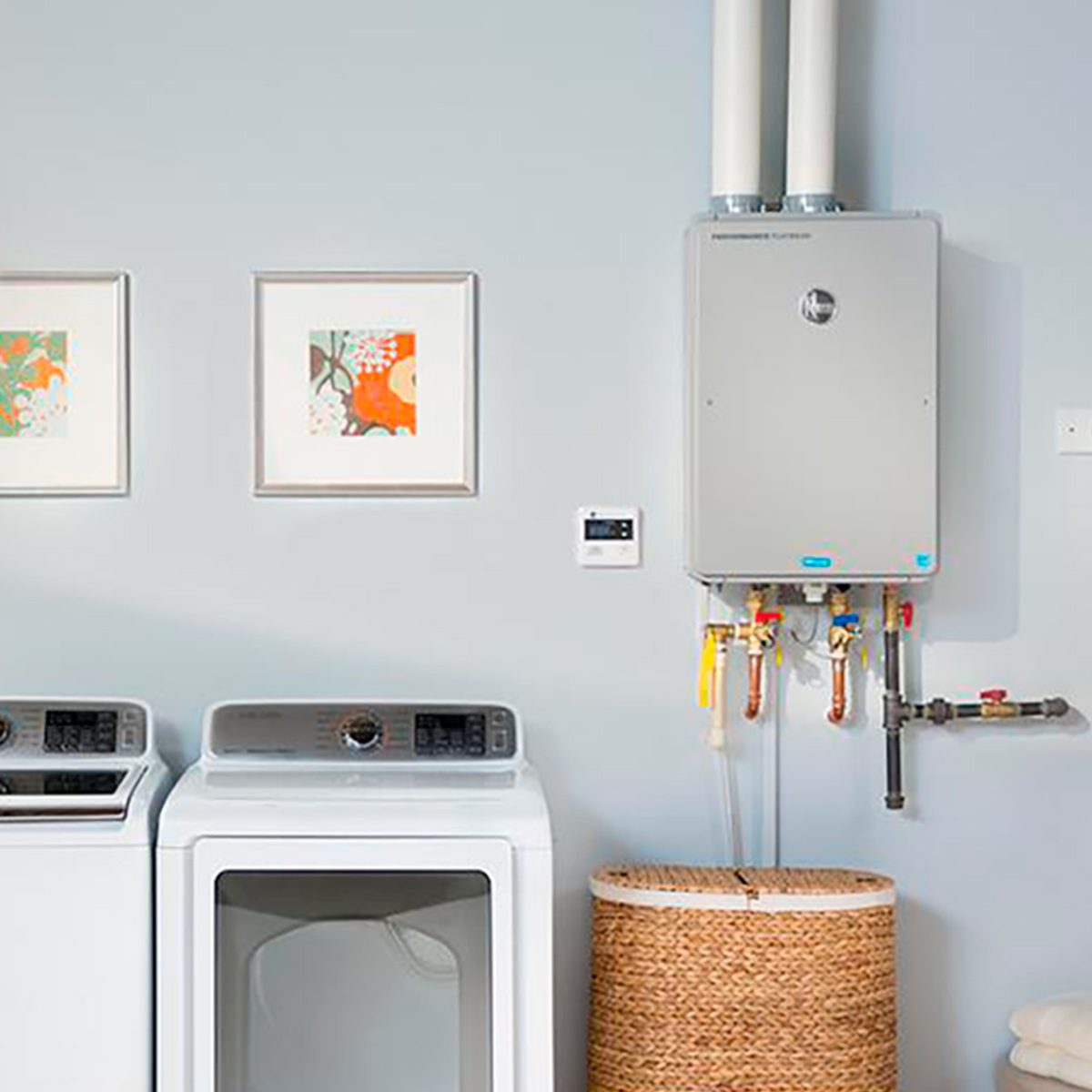Were you trying to locate know-how on Why You Should Consider a Tankless Water Heater?

In a world where convenience and performance reign supreme, it's not a surprise that house owners are regularly looking for smarter means to manage their home's power consumption and comfort. One advancement that has continuously gained popularity is the tankless hot water heater. Yet just what makes these systems stand out from the traditional tank-based models a lot of us grew up with? Let's dive in and check out the advantages of tankless water heaters, aiding you decide if it's time to make the button in your home.
Intro
Image this: you enter the shower after a lengthy day, anticipating a soothing waterfall of warm water, just to be welcomed by icy beads due to the fact that the last person used it all up. Noise acquainted? Typical hot water heater keep a set quantity of warm water, meaning you're at the grace of that storage tank's supply. Tankless systems, on the other hand, warm water on demand. Say goodbye to going out mid-shower, say goodbye to fumbling with routines simply to guarantee warm water is readily available.
Recognizing Tankless Hot Water Heater
What Are Tankless Hot Water Heater?
Tankless water heaters, often referred to as on-demand or instant hot water heater, give warm water only as it's needed. As opposed to storing gallons of pre-heated water, these units kick into action the minute you activate the faucet. Water travels through a heat exchanger, warming up in real-time, implying you obtain an uninterrupted flow of warm water without the demand for a big tank resting lazily by.
Just how Do They Differ from Traditional Systems?
Standard heating units hold a storage tank of warm water, utilizing energy to keep that tank at a regular temperature level. Tankless systems eliminate the standing supply, cutting down on thrown away energy and the large impact of a large cylinder. Basically, you're updating from a "accumulation" attitude to a "made-to-order" approach.
Common Types of Tankless Systems
Tankless hot water heater typically come in 2 varieties: gas and electrical. Gas models have a tendency to provide greater flow prices, perfect for bigger households, while electrical models typically serve smaller homes and are usually simpler to mount. Additionally, some systems are created for point-of-use (serving one component) while others can handle the whole home's warm water needs.
Key Benefits of Tankless Hot Water Heater
Energy Efficiency and Cost Cost Savings
Say goodbye to warming a titan container's well worth of water and keeping it cozy all the time. Tankless heating units reduce standby power losses, which can lower energy bills. While the first price might be greater, the lasting financial savings often warrant the investment.
3. Space-Saving Style
If your home is short on storage space, removing the cumbersome container frees up important area. Tankless systems are compact and can frequently be placed on wall surfaces, hidden in edges, or mounted in limited utility storage rooms without gobbling up the whole space.
4. Longer Life expectancy
A well-kept tankless water heater can outlast its tank-based relative. Typical storage tanks might last 10-15 years, while tankless versions can keep chugging along for 20 years or more, making them a strong investment in time.
1. Endless Warm Water Supply
Ever had to set up showers so everyone gets their fair share of warm water? With tankless, that becomes a distant memory. As long as the heater's flow ability isn't gone beyond, you can take back-to-back showers without turning into a popsicle.
5. Improved Water High Quality
Saving water in a container can in some cases cause sediment accumulation or a slightly "off" taste. With tankless systems, fresh water is heated up on the spot, lowering the possibilities of sediment build-up and potentially providing cleaner-tasting water.
Factors to consider Prior To Changing
Though the benefits are engaging, it's wise to think about a few variables before fully dedicating.
Examining Your Home's Water Usage Patterns
If your household simultaneously makes use of several fixtures with high warm water demand, make sure the system's flow price meets your demands. Understanding your use patterns aids you pick the appropriate size and sort of tankless heater.
Upkeep and Care Tips
Tankless systems are reasonably low maintenance, yet they aren't set-it-and-forget-it appliances.
Routine Cleansing and Descaling
Difficult water minerals can accumulate in the warmth exchanger, impacting performance. Routine descaling (often recommended yearly) maintains the system performing at peak performance.
Yearly Expert Assessments
A yearly checkup from a professional makes sure minor problems are caught early. They'll evaluate the unit's efficiency, try to find leakages, and help maintain optimal efficiency.
First Financial Investment Prices
Tankless heating systems usually include a higher ahead of time price. Between the device itself and possible installment adjustments, the initial price may offer you sticker shock. However remember to see it as a long-term financial investment.
Installation Demands
Depending upon your home's infrastructure, you could need extra electric capability or gas line upgrades. Guarantee you understand the setup demands and talk to an expert to stay clear of shocks.
Guaranteeing Proper Ventilation
For gas versions, appropriate air flow is essential to safely get rid of exhaust gases. Make sure airing vent systems are clean and appropriately installed to stop any kind of potential safety hazards.
Contrasting Different Brands and Designs
Not all tankless hot water heater are created equal.
Investigating Reputable Manufacturers
Try to find respectable brands with a history of creating high quality systems. A reputable maker usually provides far better customer support and longer warranties.
Setup: Do It Yourself or Professional?
While some property owners relish taking on projects themselves, tankless installment might not be the very best time to burst out the toolbox.
Advantages and disadvantages of DIY Setup
A do it yourself mount might conserve money, yet it includes risks. Wrong setup can lead to inadequacy or safety and security worries. If you come in handy and have experience, it could be feasible-- but proceed with caution.
Reviewing Evaluations and User Comments
User evaluations and feedback from next-door neighbors or buddies who have gone tankless can supply important understandings. Occasionally, real-life experiences can be more informing than advertising and marketing sales brochures.
When to Call a Specialist Plumbing
For most, calling a pro makes sure whatever's done appropriately. A specialist plumber comprehends local codes, sizing demands, and venting specifications, decreasing the risk of incidents.
Taking full advantage of Efficiency
You have actually purchased a tankless device-- currently maximize its performance.
Optimum Temperature Setups
Most individuals set their systems between 120-140 F. Readjusting the temperature can enhance convenience and financial savings. Experiment to find a wonderful spot that doesn't squander energy.
Coupling With Low-Flow Fixtures
Want to stretch your device's capabilities? Consider setting up low-flow showerheads and taps. They lower water usage, allowing your tankless system to provide a stable stream of warm water without stressing.
Environmental Impact
Tankless water heaters line up with greener living objectives.
Reduced Carbon Footprint
By utilizing less power and only home heating water as required, tankless systems can decrease your home's carbon footprint, reducing your ecological influence.
Saving Natural Resources
Much less energy intake and less thrown away hot water equate right into less natural resources being used, an ecological win-win.
That Profits Many from Tankless Heating units?
The elegance of tankless heating systems is that they can suit a variety of homes.
Big Households vs. Solitary Owners
Large family members might love the endless hot water supply, while solitary occupants appreciate the power financial savings from not heating a whole container for just someone's early morning shower.
Home Owners with Minimal Area
If your home is short on square video, shedding the large tank liberates area for various other basics-- or perhaps just extra breathing space.
Eco-Conscious Consumers
Going tankless aligns with eco-friendly values, guaranteeing you're not throwing away energy or sources.
Future Fads in Tankless Water Heaters
The globe of home appliances is ever-evolving, and tankless water heaters are no exemption.
Improvements in Modern technology
R&D is constantly enhancing warmth exchangers, making units much more effective and sturdy. Future models may be also quieter, extra compact, and much better fit for differing environments.
Smart Home Combination
Envision readjusting your hot water heater's temperature level through an application or receiving maintenance signals on your phone. As smart home tech advances, we'll see even more connection and convenience.
Final thought
Choosing a tankless water heater is more than just upgrading your home's warm water system; it's buying long-lasting comfort, power efficiency, and a greener way of living. By considering your family's water usage, bearing in mind setup requirements, and devoting to regular maintenance, you can enjoy a stable stream of hot water without the baggage of a cumbersome container. As modern technology progresses, you can expect even smarter, a lot more effective tankless solutions that not just make your life much easier yet likewise profit the earth.
Six Benefits of a Tankless Hot Water Heater
Continuous hot water. Large families know what a pain it is to hop into the shower and get blasted with cold water. With a tankless hot water heater, this doesn't happen as long as you install the right size tank. Even if you don t have a large family, a tankless hot water heater allows you to use multiple appliances at once without running out of hot water. Reduced energy bill. Because tankless heaters are essentially "off" when the water tap is not on, they use less energy overall. In fact, an ENERGY STAR-qualified tankless hot water heater can use 25-40% less energy than a conventional water heater, and save the average family $100 or more annually. Longer life. Get more bang for your buck with a greater lifespan. Specifically, conventional hot water heaters last about 10-13 years compared with up to 20 years for a tankless hot water heater. Less space. Did you know that tankless hot water heaters can be hung on a wall almost anywhere in your home? Plus, at 28" tall by 20" wide and 10" deep, a tankless hot water heater takes up a lot less space than a conventional hot water heater, which is 60" tall and 24" wide. Good for the environment. In addition to reducing the amount of energy used, most propane-fired tankless water heaters are made of recycled materials. Many conventional tanks, on the other hand, go directly to the dump once they've served their purpose. High safety ratings. Conventional water heaters are "always on" and thus pose safety risks more often than do tankless heaters, which only operate when warm water is needed. https://www.rotorooter.com/blog/water-heaters/six-benefits-of-a-tankless-hot-water-heater/

I discovered that piece about while doing a search on the internet. If you please pause to distribute this page if you enjoyed reading it. Bless you for your time. Come back soon.
Click On This Link